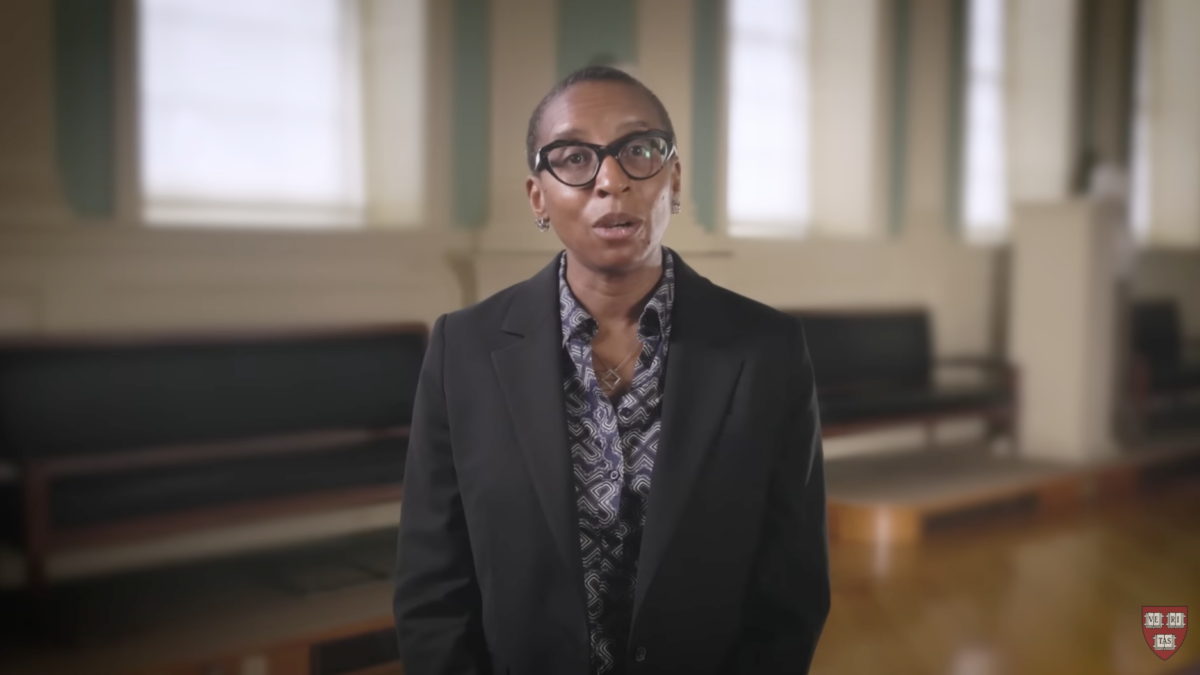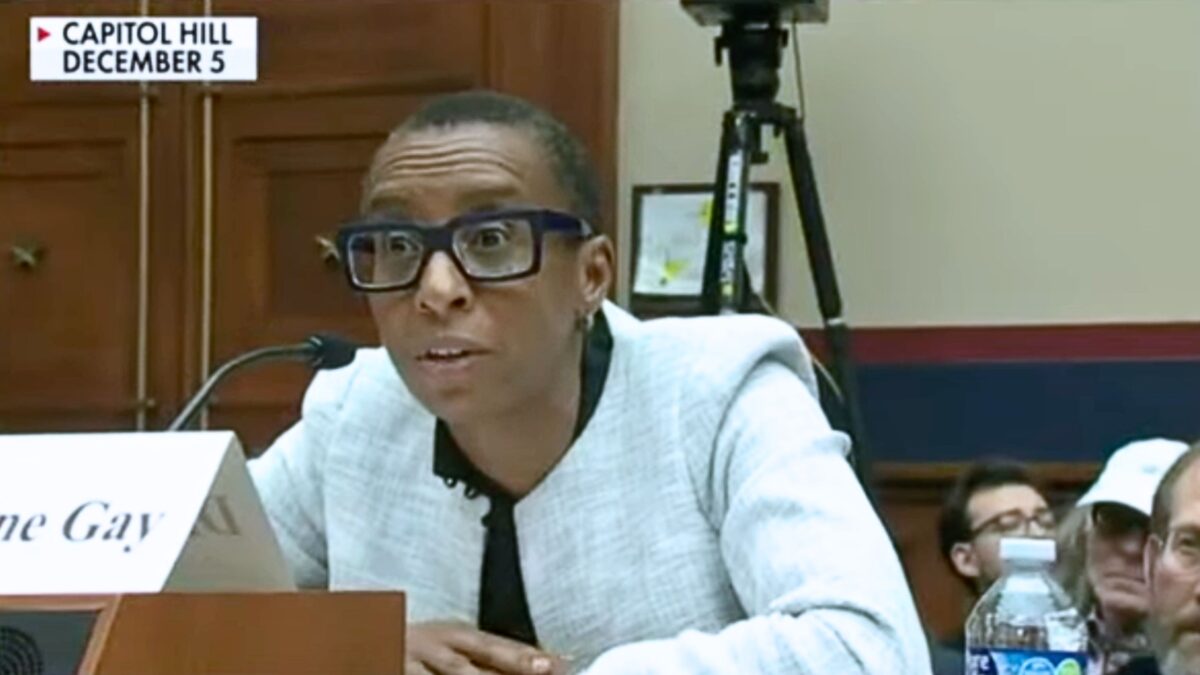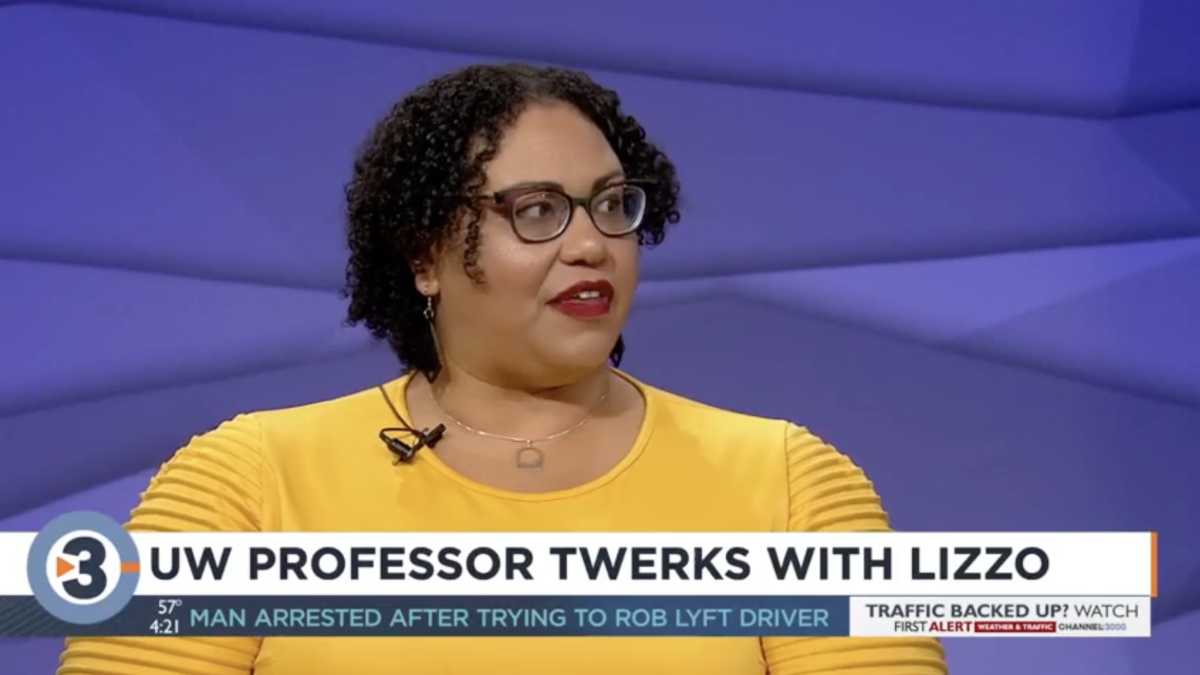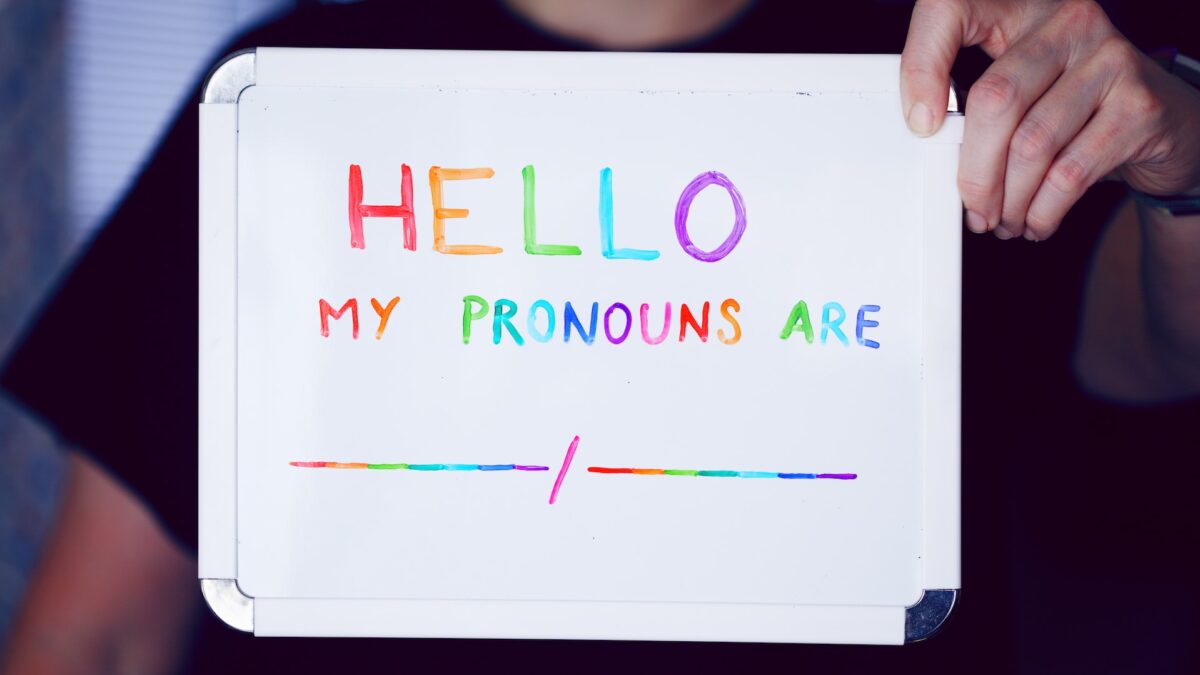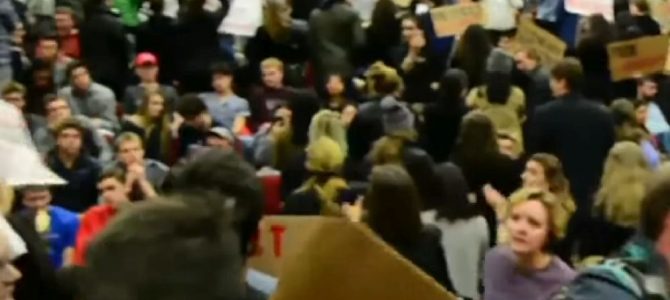
Even as Middlebury College administrators investigated students who were disruptive and violent against libertarian social scientist Charles Murray, the school’s student government expressed its sentiments that penalizing their behavior is unjust.
On Monday, the Middlebury administration announced it had disciplined 30 students so far for their actions during the Murray event. Students had stood up and shouted to prevent Murray from speaking. When he was moved to a different location, along with professor Allison Stanger, who was set to ask him tough questions about his books, students banged on the windows and pulled fire alarms, which shut off the talk’s livestream.
When Stanger and Murray left the building, students surrounded them and further antagonized Murray, resulting in an injury to Stanger that required a neck brace. They also beat on their car’s windows, rocked the car, and threw a stop sign with a heavy concrete base in front of the car as Stanger and Murray attempted to leave the tumult.
But on April 12, more than a month after the attack on Murray and Stanger and after Middlebury began investigating more than 70 students for their behavior (the school is still working on disciplining the remaining students), the student government voted to demand the administration change the college handbook and not punish students who violated the original.
The ‘Marginalized’ Can Do No Wrong
The student bill argued that arresting students who engage in violent and disruptive behavior would result in “psychological trauma for marginalized students.” That’s right, the student government essentially argued that people it deems “marginalized” should get a free pass on violence and disorderly conduct.
The students also associated arrests and criminal charges “with police violence and the carceral state, which law professor Michelle Alexander refers to as ‘the New Jim Crow.’” What do these students want, no more police? Because that’s how this comes off.
Further, the students argued that “criminal charges disproportionately hurt marginalized people’s opportunities and acceptance in wider society post-graduation.” Maybe these students shouldn’t have thrown temper tantrums and violated the student handbook (and common decency) by becoming violent. Maybe that behavior is what would hurt their post-graduation acceptance.
The students voted 10 to 3 to change the college handbook to read that only “violent disruption may also result in arrest and criminal charges such as disorderly conduct or trespass.” The bill has no power to enact the changes it demands, so is merely an expression of student leaders’ will.
The students also requested the ability to distribute materials, such as leaflets, in a confrontational way. They wanted to remove the prohibition of distributing in a confrontational way, but keep a section about allowing others to “decline to receive the materials.”
Our Violence Is Okay, But Yours Is Not
One acceptable change to the student handbook probably isn’t necessary, but might as well be stated. The students requested a clause in the handbook to state that campus security, outside security, and any contractors hired by the school or its affiliates (but not police, whom the students bash at the start of the bill) “may not use violent force against students unless they, or another individual, are first acted upon violently by those students.”
Finally, the student government demanded the school “reconsider any discipline leveled against students involved in the protests against Charles Murray and Middlebury College that were founded in the wording of the College Handbook prior to the passing of this bill.” The students also demanded to be consulted on any changes to the handbook in the future.
This is the same student government who, after the Murray event, suggested that inviting the conservative author violated community standards, simply because some students didn’t like what he had to say. Far from being “marginalized,” the students protesting Murray were in the majority on campus. They may be “marginalized” in broader society, but on college campuses, they have the support of the vast majority of administrations so long as they hold liberal viewpoints.
It doesn’t look like the Middlebury administration accepted the student government’s demands, since it announced on May 1 that 30 students had been punished and more may be disciplined by the end of the month. Students who became violent and disrupted the event to the point where it could not continue need to disciplined, and a message needs to be sent that this behavior is unacceptable in civilized society.


